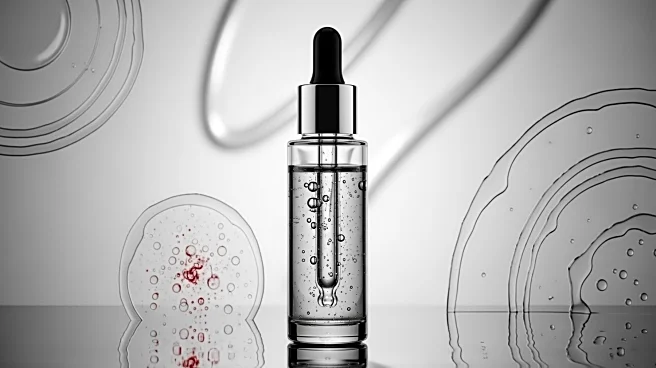What's Happening?
Researchers at National Taiwan University have developed a serum that promotes hair growth by mimicking the effects of skin irritation. The study found that skin irritation, such as eczema, stimulates fat cells to release fatty acids, which are absorbed
by hair follicle stem cells, leading to hair growth. The serum, composed of oleic and palmitoleic acids, was tested on shaved mice and showed promising results in promoting hair regrowth without causing discomfort. The researchers plan to test the serum on human scalps, aiming to offer a new solution for hair loss treatment.
Why It's Important?
This development in hair growth treatment could provide a non-invasive alternative to existing therapies, such as medications or steroid injections. The serum's ability to stimulate hair growth without irritation could appeal to individuals seeking effective and comfortable solutions for hair loss. The research highlights the potential of using naturally derived fatty acids in cosmetic applications, which may influence future product formulations in the beauty industry. Successful human trials could lead to a new market segment for hair growth products, impacting consumer choices and industry trends.
What's Next?
The researchers plan to conduct further tests on human scalps to determine the serum's efficacy and optimal dosage. If successful, the serum could be commercialized, offering a new option for individuals experiencing hair loss. The study's findings may encourage additional research into the role of fatty acids in hair growth, potentially leading to new treatments and products. The beauty industry may see increased interest in natural and non-invasive solutions, influencing product development and marketing strategies.
Beyond the Headlines
The study underscores the importance of understanding the biological mechanisms behind hair growth, which could lead to more targeted and effective treatments. The use of naturally derived ingredients aligns with consumer preferences for eco-friendly and sustainable products, potentially driving innovation in the beauty industry. The research may also contribute to broader discussions on the role of skin health in overall well-being, influencing public perceptions and healthcare approaches.















